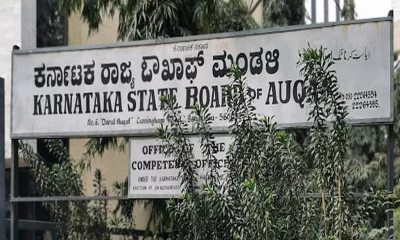Shashwat Mishra, Mumbai Uncensored.
BMC’s Marathi Medium Schools currently are facing an existential crisis in the city of Mumbai. The following conclusion has been highlighted by Praja Foundation in its White Paper released in December 2016, which has pointed out that the number of students in Marathi Medium Schools has declined from 1,16,086 in 2011-2012 to 71,454 in 2015-16. If we talk about the decline in a total number of enrolments in Municipal Corporation of Greater Mumbai, (MCGM) schools then it has decreased by 31% from 2014-15 to 2018-19. What is interesting to note here is that while the enrolments in Marathi medium schools are declining, there is a significant increase in the enrolment rate in other private schools which is about 182%, from 2014-15 to 2018-19.
According to the teachers, management and other public-spirited citizens who are fighting for Marathi medium education have alleged that these schools are in such a poor condition owing to the government’s discriminatory policies. Another opinion raised by such individuals is that due to the current perception of these municipal schools and parents’ attraction towards English medium schools the enrolments are declining. However, the major point here is the lack of government policies to revive and revamp such municipal schools.
Aam Aadmi Party’s Mumbai working President Mr. Ruben Mascarenhas has provided his detailed insight into the current state of municipal schools and BMC’s management, he has also provided solutions which can be implemented to improve the current situation, he says, “Shiv Sena-led BMC is singlehandedly responsible for the dismal state of education in Mumbai in general, and schools in particular. In an AAP governed state like Delhi, we’ve allocated 26% of INR 69,000 Crores of our budget to education, as compared to a mere 7.5% of 39,000 crores by the BMC in Mumbai; this is lesser when compared in both, absolute and percentage terms. BMC schools, in general, remain in a state of neglect – due to suboptimal infrastructure, no investment towards teacher training, no effort towards improving the learning outcomes of students, or measuring them. For example, playgrounds, libraries, and computer labs are missing in schools. BMC schools are shutting down and its prime real estate is being repurposed for other uses. As per Praja, there will be no students studying at BMC schools by 2028.
What is clearly evident in the last 30 years of the Shiv Sena’s misrule in the BMC, is its poor standards of governance, and misplaced priorities. To begin with, it simply doesn’t have the will to think status quo and work towards better public service delivery when it comes to education, simply because of deeply entrenched interests – which are a fountainhead of both, wholesale and retail corruption. Merely rebranding schools and building a few highly affiliated schools here and there is a band-aid approach towards solving the larger disease of a systematic failure of education under the BMC.
The situation requires solutions on multiple fronts, and some of the said solutions are as follows:
1. The immediate up-gradation of primary and secondary infrastructure of schools,
2. Attempts towards increasing enrolments in BMC schools using creative teaching and learning programs and incentives
3. Teacher training programs, and introduction of estate managers to reduce administrative duties of the teaching staff
4. Execution of programs towards improved learning outcomes for children and their measurement, so as to ensure quality education.”
After the introduction of the Right to Education Act, 2009, it has been mandated that schools cannot run without the approval of the concerned department. One of the owners of Marathi medium schools pointed out that. “With no aid or approval from the government, the schools don’t have the means to continue running,” said the owner of a Marathi medium school. He added, “Teachers and principals are spending money from their own pockets to keep some of them afloat.”
On the contrary, English medium schools get speedy approval as pointed out by Girish Samant, a trustee of the AB Goregaonkar School, a Marathi medium school. He further pointed out, “The education department has now completely stopped grant approval to new Marathi medium schools. Some of these schools have been vying for permissions since 2012. Both BMC and the state government are on a campaign to save money. They seem to be least bothered about Marathi medium schools shutting down. Since the past decade, they have made things difficult for the management and staff of Marathi medium schools”. This issue is also important as the current government with Shiv Sena at the helm is known for its “Marathi Manus” image and has been forever campaigning on this issue, pointed out by Sunil Shejule, co-ordinator of Marathi Shala Sansthachalak Sangh.
Mrs. Rakhee Sunil (Social Worker), points out that, “the number of Marathi schools have drastically reduced and even more alarming is the rate of students who have shifted from Marathi medium to English medium. One of the main reasons for this is the inclination of parents towards English medium schools. They want their children to study in English medium schools, as they feel that the job opportunities will be more if they study in English medium. Also, the infrastructure and education in many Marathi schools need a lot of upgradation. Trusts which are also running schools feel that English medium will flourish more than Marathi medium schools. As a social worker I work with schools, I have seen many Marathi medium schools being shut down due to a lack of students. New admissions are very negligible and hence it is not feasible to continue. Rigid Governmental rules are also partially responsible for the same.”
Amidst all of this, the stats and numbers surely suggest that Marathi medium schools are in dire need of a revival, in the past decade 133 Marathi medium schools have shut down, furthermore, between 2010-11 to 2019-2020, the number of students in Marathi medium schools has declined by 67,033. The reports suggest a gloomy situation, and prompt action by the government is what may be the right step in this direction.



 Health3 weeks ago
Health3 weeks ago


 Special Editions2 months ago
Special Editions2 months ago


 Special Editions1 day ago
Special Editions1 day ago


 Special Editions21 hours ago
Special Editions21 hours ago


 Special Editions1 day ago
Special Editions1 day ago














